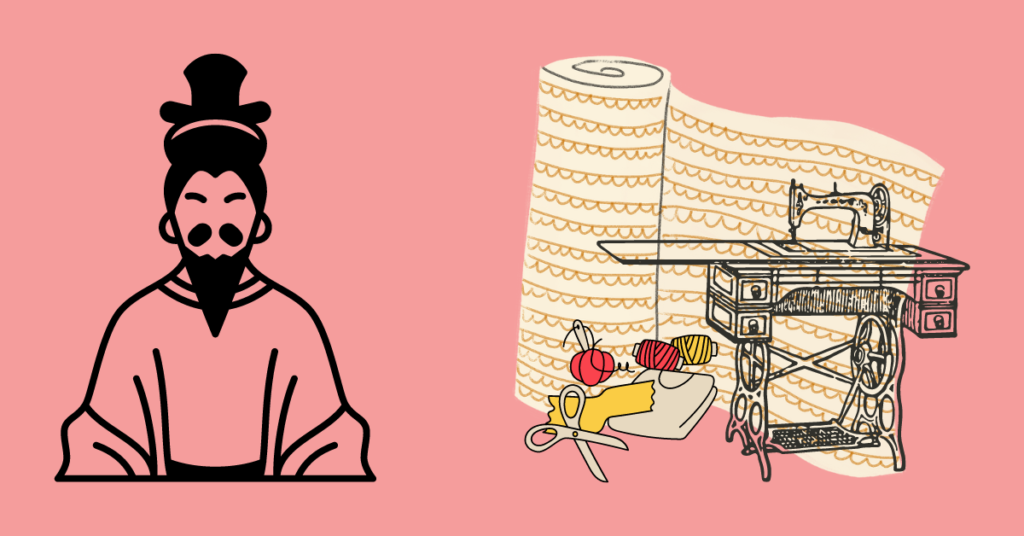
Exercise 1: Vocabulary
1. Clever: (adjective)
Definition: Quick to understand, learn, and devise ideas; intelligent.
Example: The clever weavers deceived the Emperor with their false claims of magical fabric.
2. Extraordinary: (adjective)
Definition: Very unusual, remarkable, or impressive.
Example: The weavers promised to create an extraordinary fabric that could only be seen by the wise and worthy.
3. Commissioned: (verb)
Definition: To formally request or order someone to do something, often as part of a project or task.
Example: The Emperor commissioned the weavers to make new clothes for him.
4. Anticipation: (noun)
Definition: The act of looking forward to or expecting something with excitement.
Example: The anticipation in the kingdom grew as the day of the fashion parade approached.
5. Adorned: (verb)
Definition: Decorated or made more beautiful with ornaments, jewelry, or other attractive items.
Example: The Emperor was adorned in his supposedly magnificent new clothes.
6. Intricate: (adjective)
Definition: Very detailed, complicated, or complex, often with many small parts.
Example: The weavers described the intricate patterns of the fabric they were creating.
7. Deceived: (verb)
Definition: To cause someone to believe something that is not true; to mislead or trick.
Example: The weavers deceived the Emperor and the people of the kingdom with their false claims.
8. Observation: (noun)
Definition: The action or process of closely watching or monitoring something or someone.
Example: The child’s innocent observation revealed the truth about the Emperor’s clothes.
9. Honesty: (noun)
Definition: The quality of being truthful, transparent, and free from deceit or lies.
Example: The tale teaches the importance of honesty and speaking the truth.
10. Discernment: (noun)
Definition: The ability to judge and understand things clearly, especially when making decisions.
Example: The kingdom vowed to value discernment and not blindly follow appearances.
11. Vanity: (noun)
Definition: Excessive pride in one’s appearance, abilities, or achievements.
Example: The Emperor’s vanity led him to believe the weavers’ false claims.
12. Integrity: (noun)
Definition: The quality of being honest and having strong moral principles; moral uprightness.
Example: The Emperor learned a valuable lesson in humility and integrity.
Exercise 2: Story
In a magnificent kingdom ruled by an Emperor who adored fine clothing, a pair of clever weavers arrived one day. They claimed to possess the extraordinary ability to weave the finest fabric in the world—one that was so extraordinary, it could only be seen by those who were truly wise and worthy.
The Emperor, enticed by the promise of this remarkable fabric, eagerly commissioned the weavers to create a set of new clothes for him. Word of the weavers’ unique talent spread throughout the kingdom, captivating the attention of all its inhabitants.
As the weavers began their work, they pretended to be diligently crafting the Emperor’s garments. However, secretly, they did nothing at all, for there was no magical fabric. They merely pretended, knowing that no one would dare admit they couldn’t see the fabric, fearing they would be deemed unworthy or foolish.
Curiosity and anticipation grew as the day of the grand reveal approached. The Emperor sent his most trusted advisors to inspect the progress of the weavers. Each advisor, afraid of being labeled as unintelligent or unfit for their positions, returned with glowing reports of the exquisite fabric they had seen, even though there was nothing to be seen at all.
Finally, the day of the Emperor’s fashion parade arrived. The Emperor, adorned in his supposedly magnificent new clothes, walked through the streets of the kingdom. The people, desperate to avoid being seen as unworthy, marveled at the Emperor’s invisible attire. They praised the intricate patterns, the vibrant colors, and the exceptional quality of the fabric that only the wise and deserving could perceive.
Amidst the crowd, a small child gazed at the Emperor in awe but soon burst into laughter. Fearlessly, the child exclaimed, “But the Emperor is wearing nothing at all!” The innocence of the child’s observation broke the spell that had befallen the kingdom.
Whispers spread throughout the crowd, and soon everyone realized the truth—they had been deceived by the weavers and their claim of an extraordinary fabric. The Emperor, realizing the extent of his own foolishness, felt a mix of embarrassment and anger.
The tale of the Emperor’s New Clothes serves as a powerful reminder of the danger of pride, deception, and the importance of speaking the truth, even when it is difficult or unpopular. It teaches us to question appearances and not blindly follow the crowd.
And so, the Emperor, humbled by the truth, learned a valuable lesson in humility and integrity. The kingdom, no longer under the spell of deceit, vowed to value honesty and discernment above all else. The tale of the Emperor’s New Clothes became a timeless reminder to all generations about the dangers of vanity and the strength of truth.
Exercise 3: Questions
1. Who were the two individuals that arrived in the kingdom, claiming to possess a unique talent?
2. What was the Emperor’s request to the weavers, and why was it significant in the story?
3. How did the weavers deceive the people of the kingdom regarding the fabric they were creating?
4. What pivotal moment in the story led to the revelation of the truth about the Emperor’s clothing?
5. What are some of the key lessons and themes conveyed by “The Emperor’s New Clothes,” and how do they relate to the characters and events in the story?
Exercise 4: Discussion
- Who are the main characters?
- What is the moral of the story?
- Do you have a similar story in your culture? How is it the same? How is it different?
- What did you like or dislike about the story?